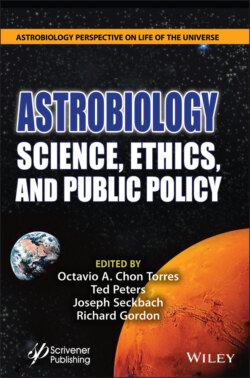Читать книгу Astrobiology - Группа авторов - Страница 38
2.3.7 Which Should Have Priority: Scientific Research or Making a Profit?
ОглавлениеAre we about to witness in space the equivalent of a gold rush? An economic and political frenzy for gaining dominance in space may break loose over the next decades. The telecommunications industry is already accustomed to the cost-effective use of satellites. We are on the brink of an era of space tourism, with the first trips to suborbit and low orbit vacations in the planning stages. Visits to the Moon will most likely follow. Establishing research laboratories on the Moon and Mars are being envisioned as is the mining of asteroids [2.91]. Might we be wise to ready ourselves for an El Dorado type of gold rush to the new extraterrestrial world? If so, should we try to put policies and policing mechanisms in place in advance?
Up until this point we have thought of outer space as a sandbox for Earth’s scientists to play in. Governments have found the money to fund modest exploratory adventures; and scientists have organized to conduct experiments which have yielded an abundant harvest of new knowledge about our cosmos. Frequently, scientific goals have been mixed with military goals, because leaders in the military have been willing to share their budgets for scientific purposes.
Scientific experiments do very little damage, if any. Somewhere on the Moon is a golf ball left by visiting astronauts. Landing on Mars or on Titan has not infected or contaminated anybody’s ecosystem, as far as we know. NASA decontaminated its first Mars lander, but more recently NASA has saved the money spent for decontamination under the assumption that a little contamination of Mars doesn’t matter. The impact on our solar system by scientific activity is benign.
This situation is about to change. The private sector is now ogling space for profit. What about space tourism? Simply flying a few wealthy passengers high enough to experience weightlessness is not likely to provoke anyone’s moral ire. But, what about tour busses roaming the surface of the Moon? Busses will leave tire tracks. Perhaps trash. No doubt tourists will want to visit that golf ball as well as historical sites where astronauts first landed. Will the crowds of visitors damage those sites? Are those sites sacred? Protectable? Who will decide and what will be the criteria by which they decide?
The market does not always react the way the marketers predict. Low cost and frequent flights to suborbit heights might actually encourage increased participation by scientists. These scientists will want to do research on the “ignorosphere.” The ignorosphere is a level just above balloon traffic but too low for satellites. Scientific researchers might buy tickets with the tourists and then look out the windows [2.81].
